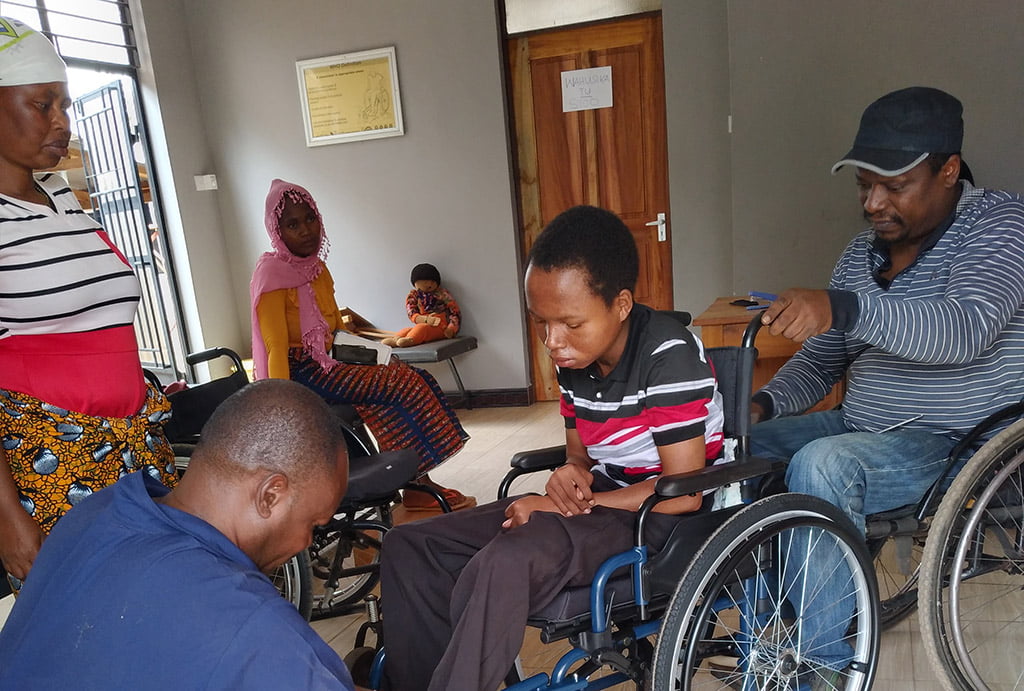Tanzania, located in East Africa, is known for its rich cultural heritage and breathtaking natural landscapes. However, like many parts of the world, Tanzania faces challenges in ensuring the full inclusion and rights of people with disabilities.
Before delving into the specific challenges faced by individuals with disabilities in Tanzania, it’s essential to understand the broader context of disability in the country. According to the World Health Organization (WHO), approximately 10% of Tanzania’s population lives with some form of disability. This includes physical, sensory, intellectual, and psychosocial disabilities, among others.
Despite progress in recognizing and addressing disability rights, individuals with disabilities in Tanzania continue to face significant challenges. One of the most pressing issues is the lack of access to education.
Many children with disabilities are unable to attend school due to physical barriers, discrimination, and a lack of specialized support. Additionally, adults with disabilities often encounter obstacles in gaining meaningful employment, leading to higher rates of poverty and social exclusion.
Healthcare is another critical concern. Access to healthcare services for individuals with disabilities is often limited, and they may face barriers in obtaining necessary medical aids and rehabilitation services. This can have severe consequences for their overall well-being and quality of life.
Moreover, negative societal attitudes and stigma towards people with disabilities persist, contributing to their marginalization and exclusion from various facets of community life.
Legal and Policy Framework
Tanzania has taken significant steps to address disability rights through its legal and policy framework. The country ratified the United Nations Convention on the Rights of Persons with Disabilities (UNCRPD) in 2009, signalling its commitment to promoting the rights and inclusion of individuals with disabilities.
The Tanzanian government has also enacted the Persons with Disabilities Act, which provides a legal foundation for safeguarding the rights of people with disabilities and promoting their full participation in society.
Progress and Initiatives
Despite the challenges, notable efforts and initiatives have promoted disability rights and inclusion in Tanzania. Non-governmental organizations (NGOs) and advocacy groups have played a crucial role in raising awareness, providing support services, and advocating for policy changes. These organizations have worked tirelessly to promote inclusive education, vocational training, and employment opportunities for disabled individuals.
In addition, there has been a growing emphasis on accessibility in public spaces and infrastructure. Efforts to make buildings, transportation, and public facilities more accessible to individuals with disabilities have gained traction, contributing to greater inclusivity in urban and rural areas. Moreover, awareness campaigns and educational programs have been instrumental in challenging negative stereotypes and fostering a more inclusive society.
Despite the progress made, significant challenges still need to be addressed. One of the key obstacles is the need for greater economic empowerment and employment opportunities for people with disabilities. Through targeted vocational training programs and policies that promote inclusive hiring practices, there is potential to improve the economic prospects of individuals with disabilities significantly.
Furthermore, ensuring the effective implementation and enforcement of existing laws and policies remains a critical challenge. While Tanzania has made significant strides in enacting disability-inclusive legislation, there is a need for more excellent resources and commitment to ensure that these laws translate into meaningful change. This requires sustained collaboration between government agencies, civil society organizations, and the private sector.
Looking Ahead
The road to achieving full disability rights and inclusion in Tanzania is ongoing, but there are reasons to be hopeful. As the global community increasingly recognizes the importance of inclusive development, there is growing momentum to prioritize disability rights on national and international agendas.
By continuing to advocate for the rights of individuals with disabilities, empowering them through education and employment, and fostering a culture of inclusivity, Tanzania can work towards a more equitable and diverse society.
In conclusion, pursuing disability rights and inclusion in Tanzania is a multifaceted endeavour that requires sustained effort and collaboration across various sectors.
While significant challenges persist, the progress and ongoing initiatives underscore a commitment to ensuring the full participation and rights of individuals with disabilities. By breaking down barriers and promoting inclusivity, Tanzania can create a more equitable and vibrant society where everyone has the opportunity to thrive, regardless of their abilities.


Well written, our organization Dash Foundation has recently kick off the wheel of hope project in Chanika Primary School, Tanga Tanzania. We did provide wheel chairs and other learning disability devices for teachers in order to help the challenged students to access education. It is so sad to know that, up to this moment in part of Tanzania, there are physically challenged students who can’t go to school and access education. This is a significant problem that not only the government should pay attention to, but also community in general.